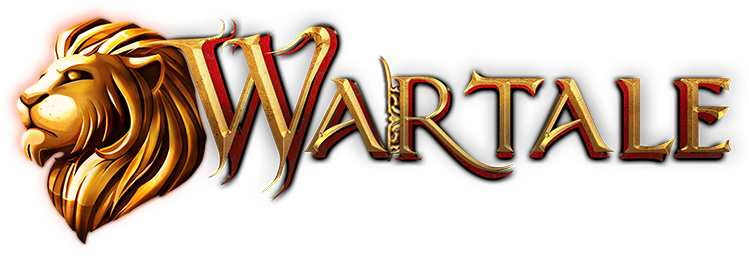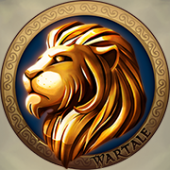Pantheon
An entity of unknown purpose and ambitions, referred to by the ancients as the Architect of Worlds, created Efria. With its own hands, it shaped new beings, extending its fingers to imbue them with a part of its creator’s consciousness. The Architect named each of them and called them gods, tasking them with administering Efria and giving them the mission to create a new, perfect being.
The gods distanced themselves from humans after many wars, and some were forgotten, giving rise to various religions. In the northwest, many embraced a monotheistic approach where Pritos is the supreme god, and the other gods were demoted to mere entities. In the southern region, they are devoted to many gods and believe that the gods still walk among humans. However, a shock occurred in religious circles after the Tome of the Ancients was discovered, which expanded the knowledge of the gods and forced many to adapt their beliefs.

Midranda, Aspect of Power
Neo-Efrian : Igolanos
Demon Language: Angras
Midranda stands as the strongest among the gods. His rational potential allowed his leadership to flourish over the other deities. Driven by a mission to transform Efria into a fully prosperous planet, Midranda grew dissatisfied with the incompetent actions of his divine peers. In response, he constructed a new plane called the Netherworld, where he discarded the rejected creations of the other gods.
For ages, Midranda held dominion over Efria. However, his arrogance led the other gods to unite and expel him from Highgarth, marking the end of the First God’s War.
Now, he goes by the name Igolanos, turning against his fellow gods and rejecting his own creator. His power is singularly focused on reclaiming his place in the divine pantheon. To achieve this, he seeks to dismantle everything created by the other gods, replacing it with his own creations. Among these are the races Pagon, Draxos, and Sopphetios, who refer to him as Angras.
.

Awell, Aspect of Justice
Neo-Efrian: Pritos
Although he is not the most powerful of the gods, Awell inspires a lot of confidence in the other eight. He led the attacks on Midranda during the first war of the gods, liberating Efria from chaos. Despite their rivalry, Awell and Midranda share similarities in their approach to power. Awell acts impulsively toward those who challenge him and did not hesitate to exterminate the Nurns as revenge for the creation of the Ancient Weapon.
However, compassion still guides Awell’s actions. He granted humans a new opportunity to thrive by guiding the Wyzen people toward the ability to experience magic. This legacy has been passed down through generations and is now spread by the Clergy of Phillai, who refer to him as Pritos. Awell is perpetually guarded by Muskon, a cosmic bird made of pure light. Muskon once soared the skies of Efria, preventing dark forces from crossing into the heavens.

Migal, Aspect of Mercy
Neo-Efrian: Mersia
Migal awakens in the night and illuminates the darkness with the moon and stars. Feared by demons, Migal is the second strongest goddess, ranking only after Midranda.
With a mediating personality, she has always sought to appease Awell’s radical actions by trying to bring peace and balance between the gods. Today, she is also known as Mersia, bringing light to the night for travelers and sailors who journey through dark waters. She is always represented by holding a moon in her hands.

Gallantia, Aspect of Time
Neo-Efrian: Paidra
Gallatia brought time and movement to the static world, manipulating the seasons at will. Known as Paidra in the language of the elders, she is commonly recognized in various religions on the continent

Mardanos, Aspect of Hand
Neo-Efrian: Tempritos
With skilled hands and powerful arms, he shaped terrain, oceans, and mountains.
Mardanos taught humans how to use their intelligence to craft tools, weapons, and accessories. The Tempskrons believe their craftsmanship skills have been gifted by Mardanos himself, who is known in the ancient language as Tempritos, bearing the title of god of the blacksmiths and artificers. Mardanos resides in the Netherworld as Midranda’s jailer, commanding the army of Death Knights to prevent his escape. Legends still say that Mardanos disguises himself as a human to discuss technological advances in Ricarten’s taverns.

Alcuin, Aspect of Land
Neo-Efrian: Rakidia
By sprinkling its hair over the land, Alcuin formed the grass and the trees on the land, and seaweeds in the sea. Rakidia, the Ancient Alcuin, is worshiped by farmers and herbalists.

Idhas, Aspect of Animals
Neo-Efrian: Skronipe
Every animal, whether on land or in the sky, bows down to its creator. Idhas populated the empty lands of Efria with fish, insects, and all kinds of animals. He assigned his Primal Guardians to protect his creation from the other gods. Skronipe granted the Thaion ancestors the ability to tame animals and use them for human prosperity

Khalia, Aspect of Life
Neo-Efrian: Mythos
Khalia is the mother of life, and also the end. She animates all existing plants and animals, giving a spark of life to each of them. The elders knew her as Mythos, a symbol of death and terror, causing fear within many who pointed to her as the reason Awell had tried to extinguish the Nurns.

Neikes, Aspect of Fate
Demon Language: Cestimo,Akronis and Necromo
The lawyer who defined the principles between good and evil, to be followed by all living things. Neikes seems to have lost importance among the Morion and Tempskron tribes, as there is no record of his existence before the discovery of the Tome. Unlike for Sopphetios, where Neikes is worshiped as a god with three faces, each deserving distinct praise. Cestimo represents the good identity, Akronis the neutral, and Necromo the evil. Each face is followed by a Guardian dragon: Crystal Dragon, the Obsidian Dragon, and the Jade Dragon.

Thales, Aspect of Knowledge
Neo-Efrian: Andril
Thales is the goddess responsible for recording the history of the creation of Efria. She gifted humans with her knowledge and linguistic ability.
Mysteriously, few records have been made directly about Thales. Some say she was a reclusive goddess whom no one could see, while others claim she was actually an old god with a long white beard. According to legend, she taught the Nurns to write in stone using strands of her beard. Thales is now known as Andril, the patron of artists and intellectuals.
-
 9
9
-
 3
3
-
 4
4

